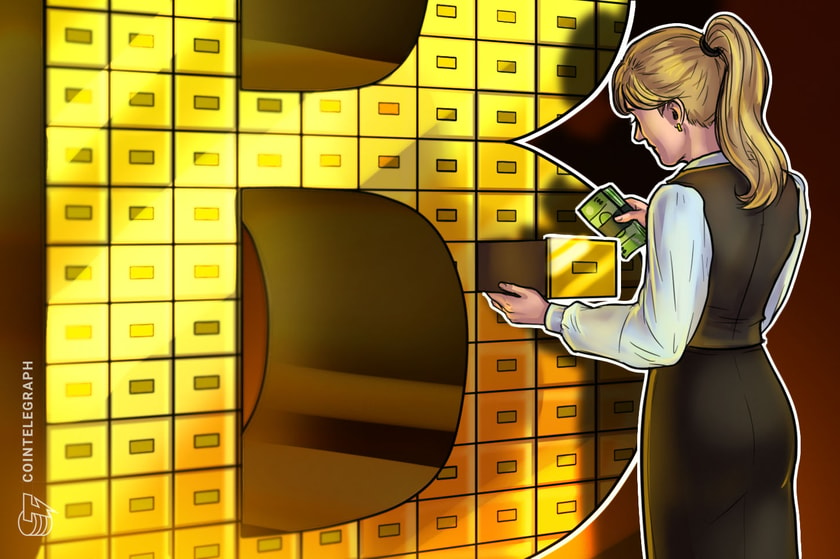
With inflation running high and sluggish UK banking interest rates, small businesses in the United Kingdom are turning to novel solutions to save money.
An online carpet and flooring retailer based in the United Kingdom has bought Bitcoin (BTC) and put it on the balance sheet, following in the footsteps of Tesla, Microstrategy and Real Bedford.
Speaking with Cointelegraph, CEO of Flooring Hut, Paul Brewster explained that:
“We see it [Bitcoin] as an asset that has probably the best potential for growth of our capital reserves at the moment.”
He explained that the group decided against keeping their cash reserves in a bank account, as Bitcoin could provide the greatest potential for providing returns which ultimately delivers greater value for customers.
According to Companies House, the British Government agency that maintains the register of U.K. companies, Flooring Hut’s accounts from 2023 showed cash reserves of £75,105, which at time of writing could afford roughly 3.3 BTC.

Moreoever, the company is Bitcoin-only. Brewster explained that “Bitcoin is an asset class in its own right;” it is akin to a “digital gold.” While on a personal level Brewster and his colleagues have an interest in the wider cryptocurrency space, “We’re not going to be putting those on the balance sheet at Flooring Hut any time soon.”
Flooring Hut will not custody the coins with crypto companies such as Coinbase or the now-defunct FTX. Instead, the company will resist rug pulls and keep the Bitcoin in cold storage, Brewster added.
This bold decision by the online retailer operating in the £2 billion carpet industry is particularly surprising as it's one of the "very few sectors where the application of technology is has been severely lacking," Brewster explained. The Financial Times, one of the United Kingdom’s most popular legacy finance publications was quick to take a swipe at Flooring Hut on its page Alphaville.

In the article, the FT explained that the Flooring Hut news “is obviously engineering the kind of publicity stunt that’s catnip for snarky blogs such as ours.” The article’s comments section is even more scathing, with one commenter exclaiming, "This is pure comedy!” to the news.
Brewster understands Bitcoin’s somewhat negative portrayal in the mainstream media:
“You’ve just got to be mindful that people draw connotations from what they read in the media. When they see the word Bitcoin they think, ‘Oh, is this company legit?’”
However, businesses across the United Kingdom are seeking innovative ways to invest their capital as cash left in the bank depreciates under high inflation. The United Kingdom and its currency, the pound are suffering more acutely than the European Union. As Brewster explains, managing a business in 2023 and in such trying economic conditions is about being “progressive”.
“We're going to reinvest that back into the company, which then leads to greater value for money for our customers, which gives us a competitive advantage over our competitors.”
The company is heading down the path of a Bitcoin Standard: that of building out a business with Bitcoin in mind. Next, the group will explore the implementation of Bitcoin Lightning Network payments to complement its online MasterCard, Visa and Paypal payment options.
Paying in Bitcoin is a small but growing trend in the United Kingdom, particularly as the Lightning Network offers lower fees than incumbent payment providers.
Related: Bitcoin block 800,000 mined — What’s next?
The price per Bitcoin is up more than 60% in 2023 in British Pounds Sterling, commencing on January 1 at £13,700. Nonetheless, Bitcoin continues to be volatile. The price corrected 2% today, while some traders predict a price plummet to $19,000 in the near-term.
Magazine: Peter McCormack’s Real Bedford Football Club puts Bitcoin on the map

























